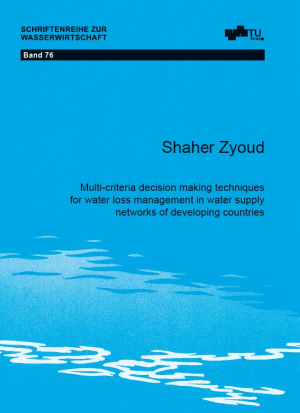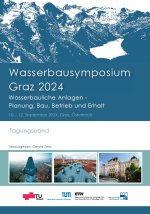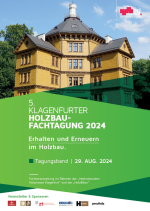Water utilities in most of the developing countries follow complex
operation techniques for the distribution of available amounts of water,
e.g. intermittent water supply. This is driven by different factors
such as: increasing water demands in parallel with water scarcity
conditions and technical and economic deficiencies. This approach is
counterproductive to the objectives of water supply networks and has
numerous associated failures like: inequitable distribution of water,
risks on public health and increasing the rates of assets deterioration
or the high rates of bursts as a result of pressure fluctuations. One of
the major promising approaches toward mitigation of the previously
mentioned deficiencies is the promotion of water loss management
practices.
This study provides methodologies to assist water
utilities in the developing countries to manage water losses in water
supply networks by:
1. Introducing the principles and applications
of multi-criteria decision making techniques in water loss management
practices to improve the planning policies of water utilities, reach a
better control over water losses based on consensus and transparent
decisions, increase the efficiency of water utilities and improve water
supply services.
2. Developing an efficient decision support framework to manage water losses by:
– developing
a multi criteria decision making framework with the purpose of
selecting the most appropriate strategies to manage water losses and,
– developing
a framework to identify the zones within water supply networks that
have high priority in terms of water losses with an aim of applying the
selected best strategy over zones with high criticality of water losses.
3. Demonstrating the proof-of-concept of the developed frameworks by applying them to real–world case studies.
This
work will be of interest for policy makers, water utilities and
researchers who have concerns in the field of water loss management, and
provides a source of tools and methodologies with potential to address
the different challenges associated with water loss management
practices, essentially in the developing countries.







